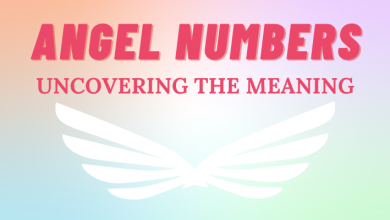Do We Dream in Colour?
When we sleep, we enter a realm of limitless possibilities, where our minds are free to roam and explore without the constraints of reality. Dreams are a fascinating phenomenon that have been studied by scientists, psychologists, and philosophers for centuries. One of the most common questions asked about dreams is whether we dream in color or black and white. In this article, we will explore this topic and try to answer the question, “Do we dream in color?”
Dreams, what mean?
Dreams are a mysterious and intriguing aspect of human experience. They are often surreal, bizarre, and filled with symbolism. Some people believe that dreams are a window into the unconscious mind, while others see them as mere random firing of neurons during sleep. One of the most enduring questions about dreams is whether they are in color or black and white. To answer this question, we must first understand the history of dreams and dream interpretation, as well as the science of dreams.
History of Dreams and Dream Interpretation
Dreams have been a source of fascination for humans since ancient times. The ancient Egyptians believed that dreams were messages from the gods and used dream interpretation as a tool for divination. The ancient Greeks also believed that dreams had significance and were often visited by the god Morpheus, who could control the content of their dreams.
During the late 19th and early 20th centuries, the field of psychoanalysis emerged, and dream interpretation became a popular tool for psychotherapists. Sigmund Freud, the founder of psychoanalysis, believed that dreams were the “royal road to the unconscious” and that they revealed repressed desires and conflicts.
The Science of Dreams
In the past few decades, advances in neuroscience have shed new light on the nature of dreams. We now know that dreams occur during the rapid eye movement (REM) stage of sleep and that they are a natural and essential part of the sleep cycle. Dreams are thought to be the brain’s way of processing and consolidating memories, emotions, and experiences.
The Color of Dreams
Color vs. Black and White Dreams
The idea that dreams are in black and white is a common misconception. In fact, the vast majority of people dream in color. According to a study published in the journal Consciousness and Cognition, more than 80% of people report dreaming in color.
The Role of Memory in Dream Color
One theory about why we dream in color is that our brains store visual memories in color. When we dream, our brains draw on these memories to create vivid and colorful dreamscapes.
The Emotional Impact of Dream Color
Another theory suggests that the color of our dreams is linked to the emotions we experience during the dream. For example, dreams that are filled with warm, bright colors may be associated with positive emotions, while dreams that are dark or muted in color may be associated with negative emotions.
Theories on Dream Color
The Evolutionary Theory
One theory about why we dream in color is based on evolutionary biology. According to this theory, the ability to see and remember color was an evolutionary advantage for our ancestors, as it helped them identify ripe fruits and other sources of food. of our dreams may be influenced by cultural factors. For example, in Western cultures, the color white is often associated with purity and innocence, while in many Eastern cultures, white is associated with death and mourning. This cultural conditioning may impact the color of our dreams.
The Psychological Theory
Finally, some psychologists believe that the color of our dreams is linked to our emotional state and personality. For example, a person who is generally optimistic and outgoing may have more colorful dreams than someone who is anxious and introverted.
Conclusion
So, do we dream in color? The answer is a resounding yes. The overwhelming majority of people dream in color, and there are several theories that explain why this is the case. Our dreams are a fascinating and complex aspect of our subconscious mind, and the study of dreams continues to intrigue and captivate scientists, psychologists, and dreamers alike.
FAQs
Can blind people dream in color?
Yes, blind people can dream in color, even if they have never seen color in their waking life.
Do all animals dream in color?
It is unclear whether all animals dream, but some animals, such as dogs and cats, have been observed exhibiting behaviors during sleep that suggest they may be dreaming.
Can we control the color of our dreams?
Some people claim to be able to control their dreams to some extent, including the color of their dreams. However, this is not a universal ability and requires practice and training.
Is there a correlation between dream color and mental health?
Some research suggests that people with depression and anxiety may have more frequent black and white dreams than people who are not experiencing these conditions.
Are recurring dreams always in color?
The color of recurring dreams can vary, just like the color of any other dream.
What to read next:
Source: https://numerologybox.com
Category: Angel Number




